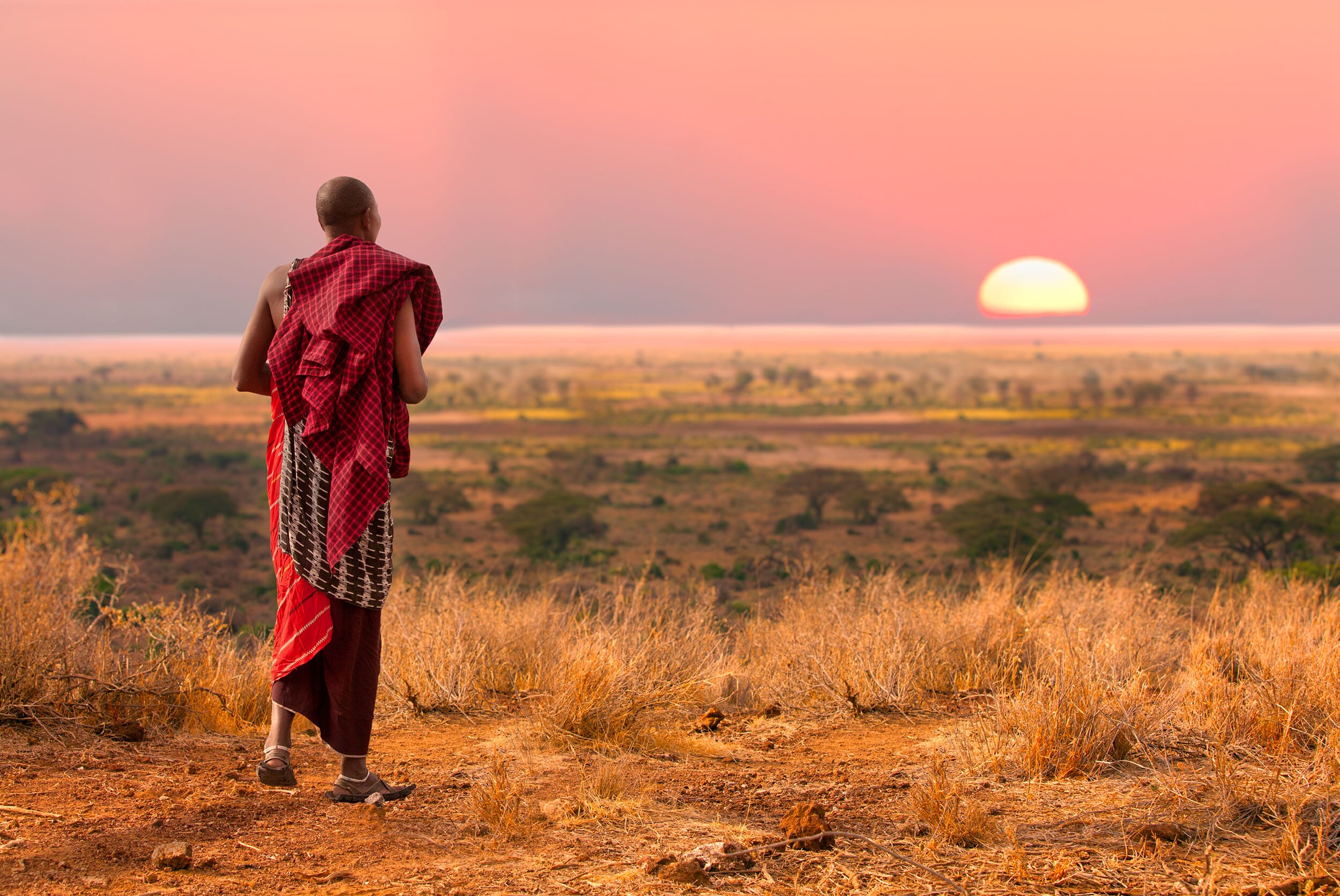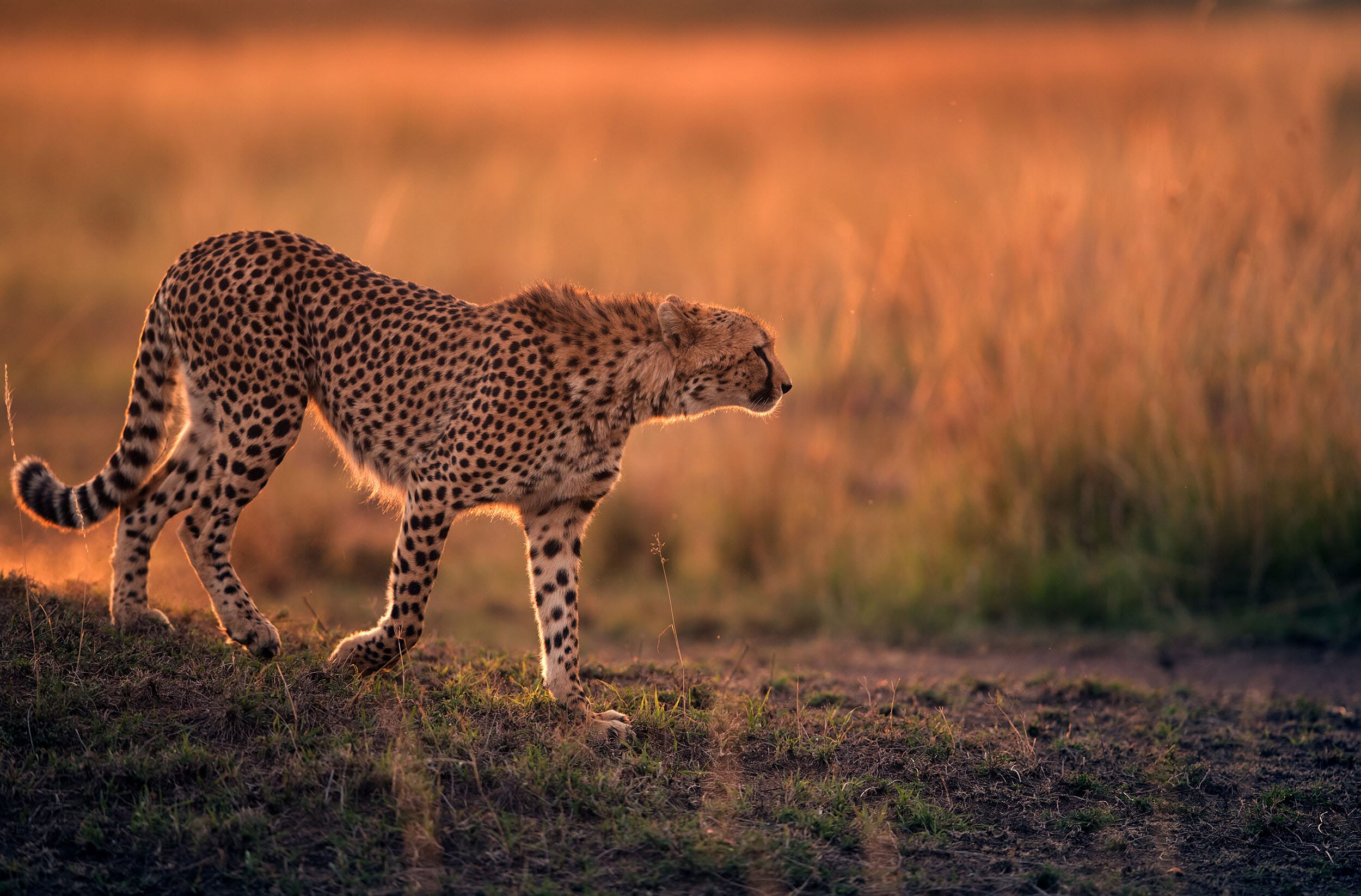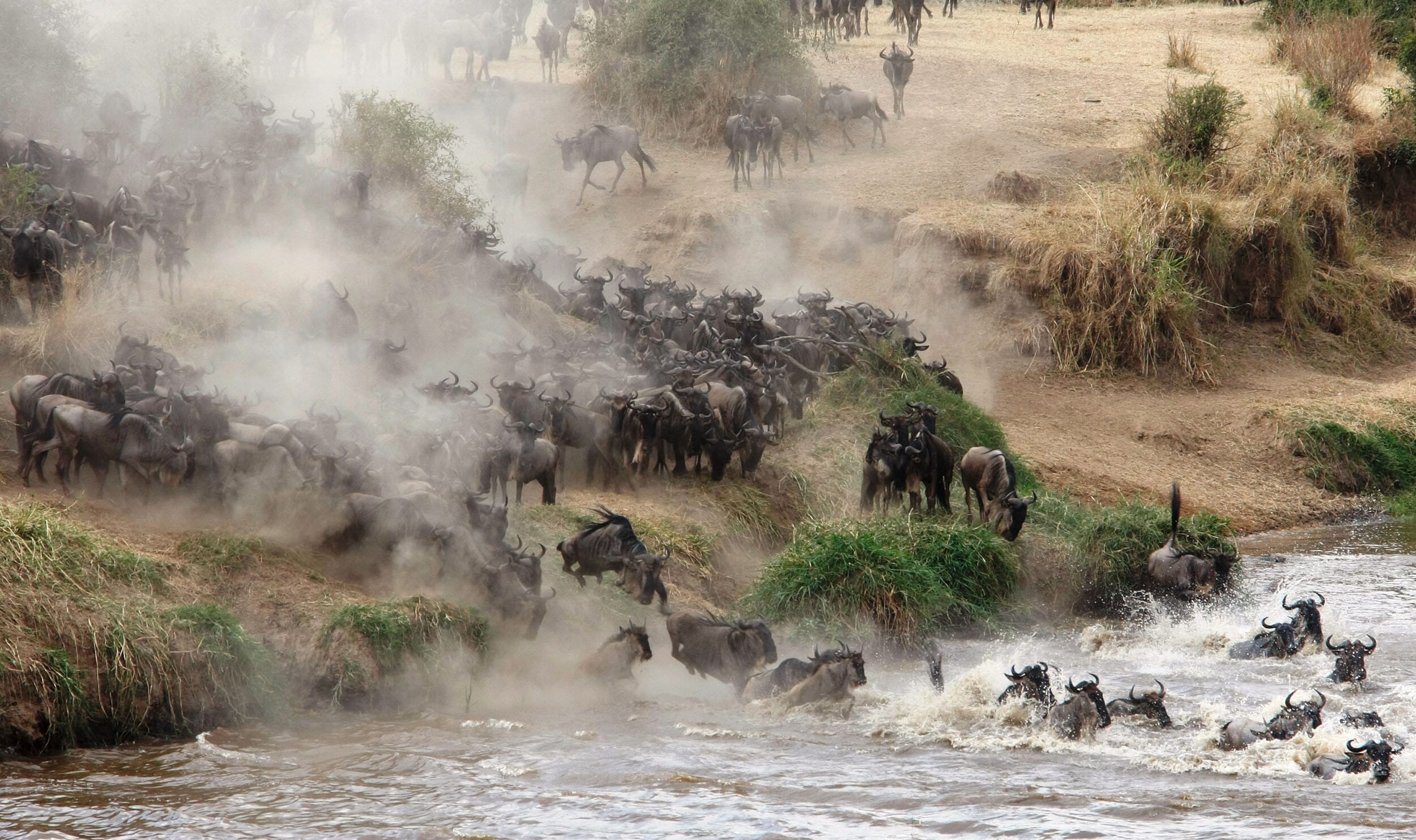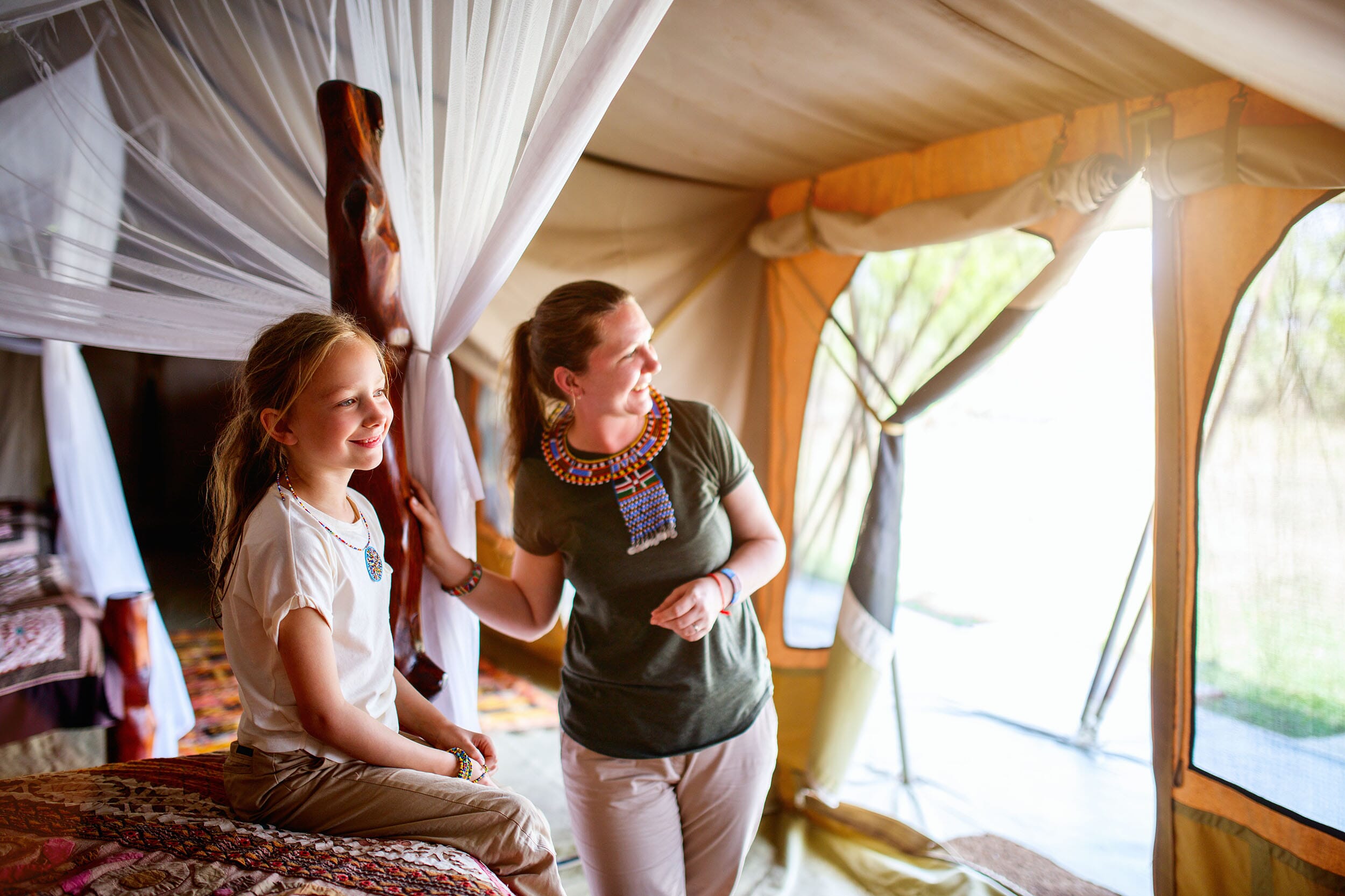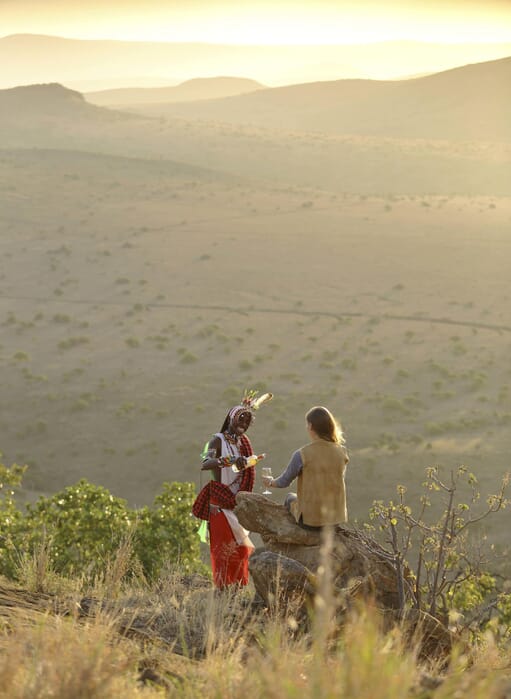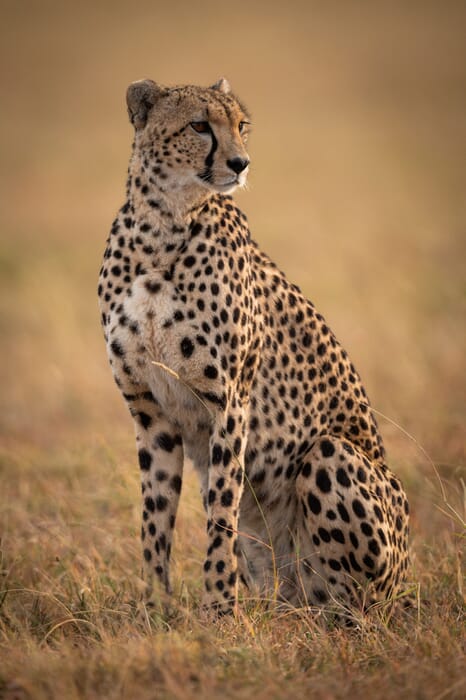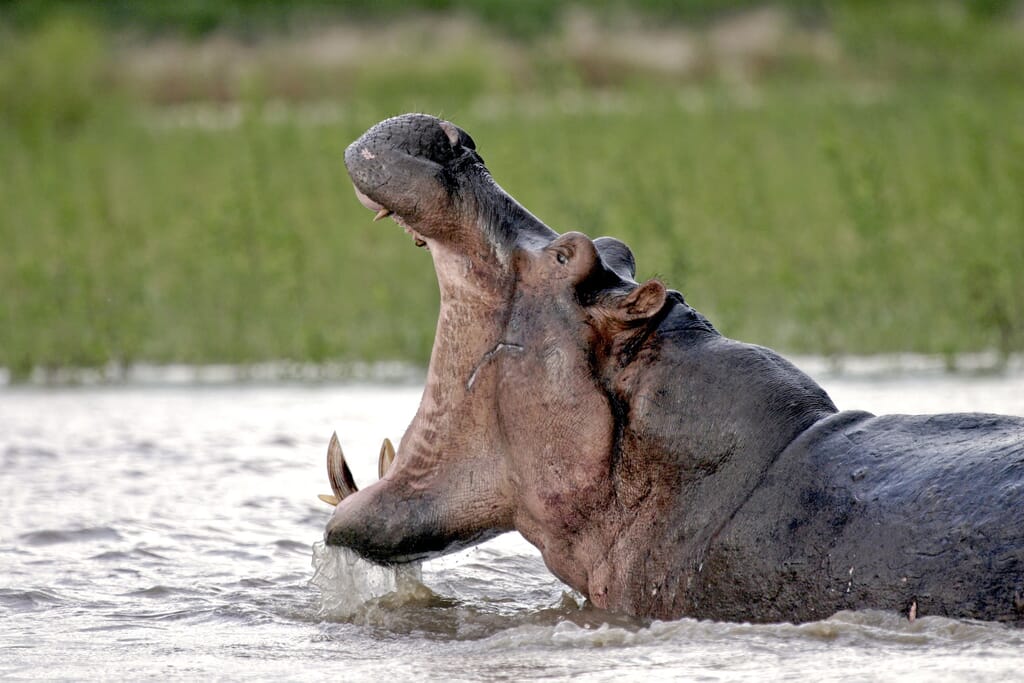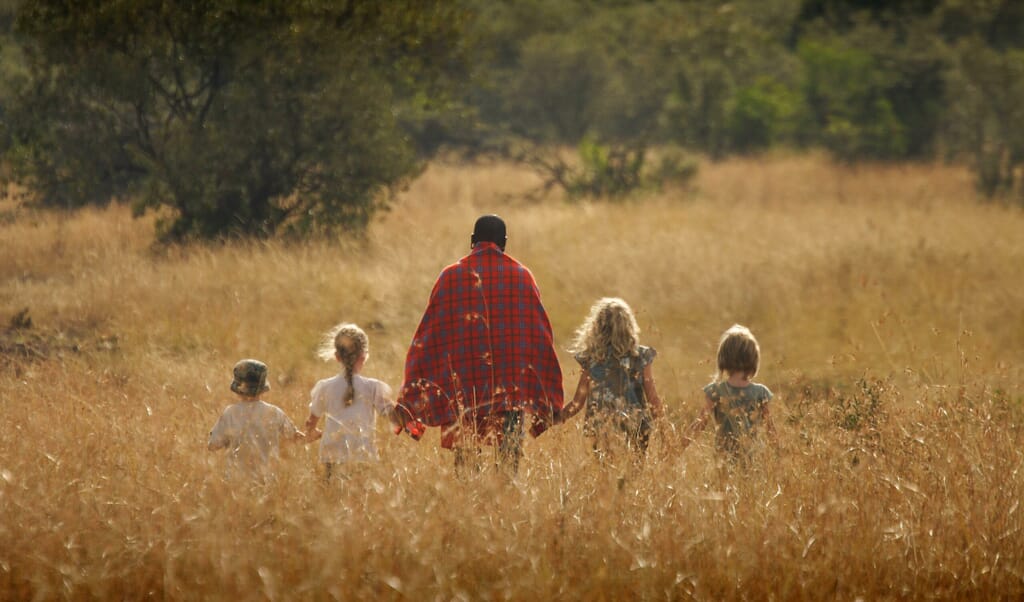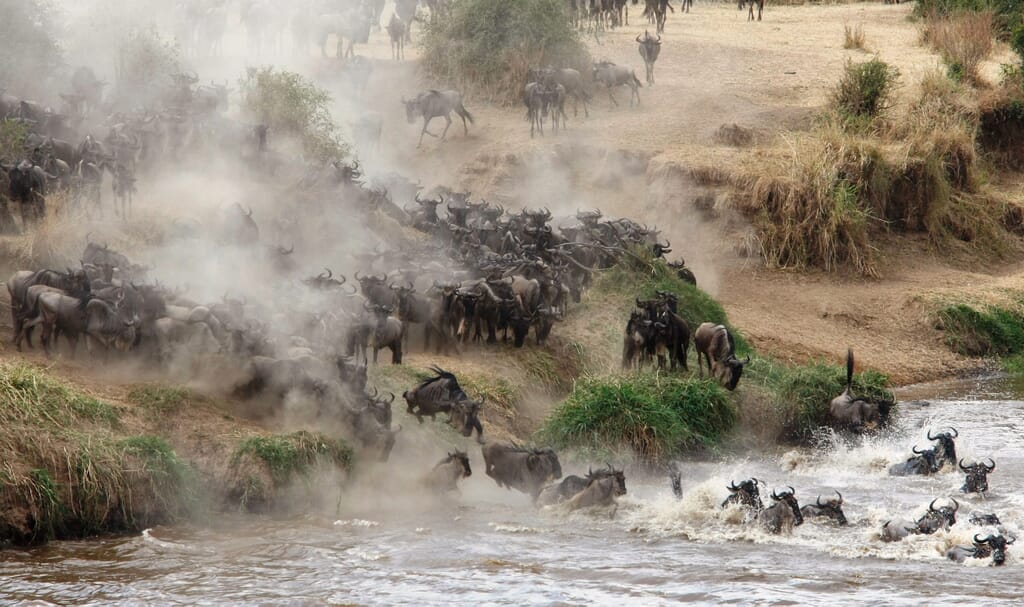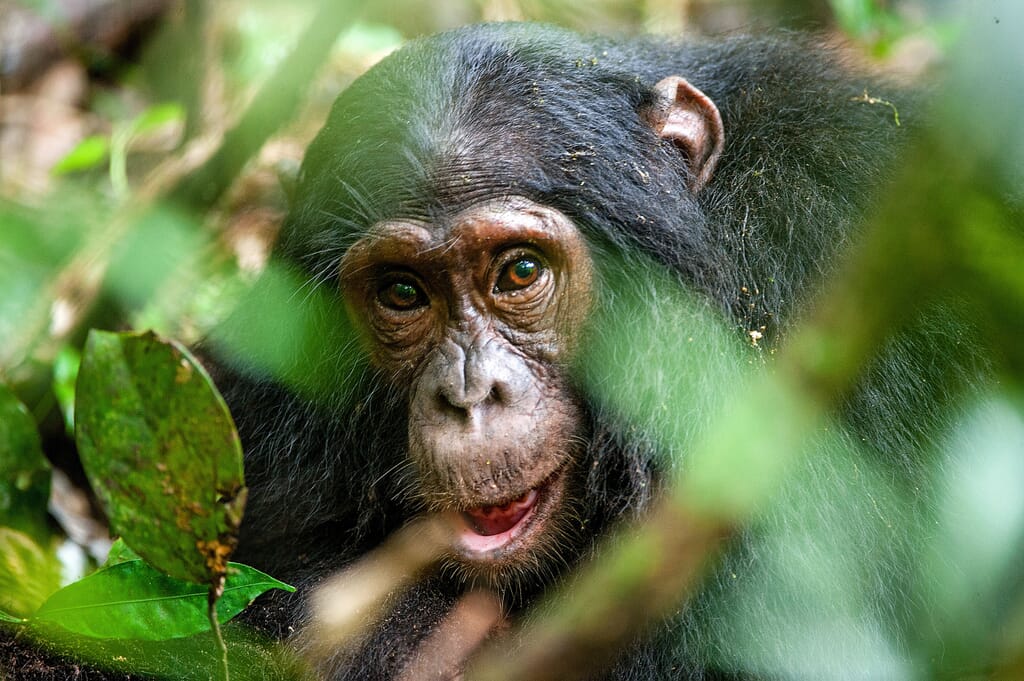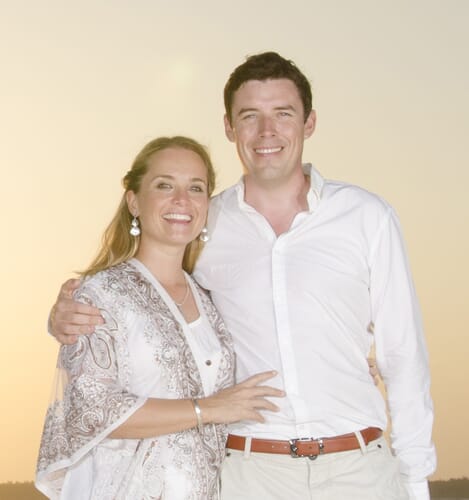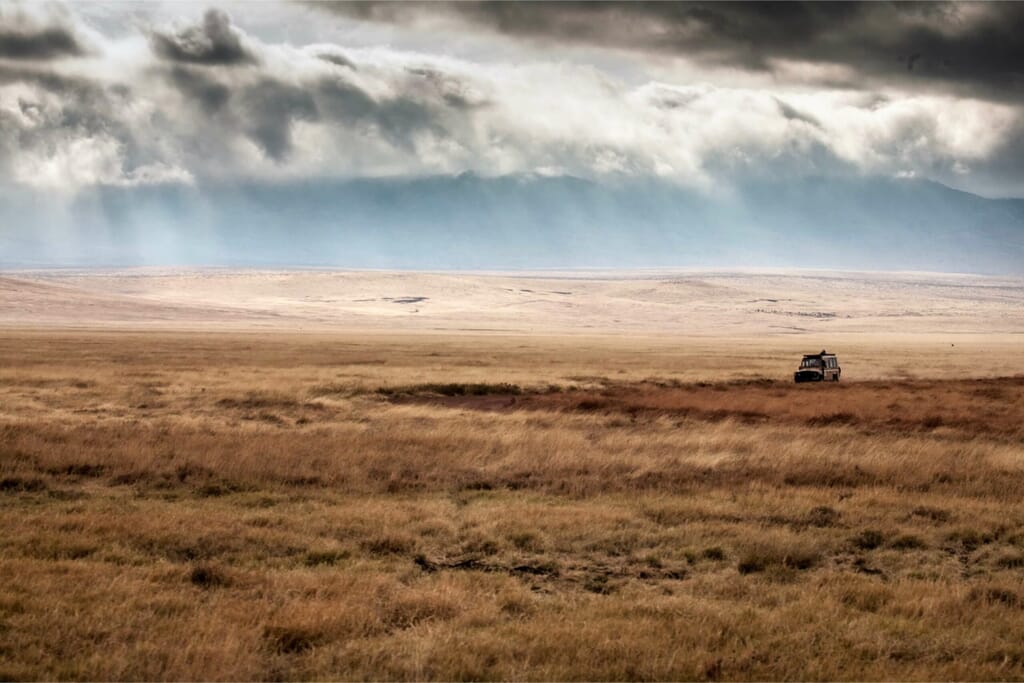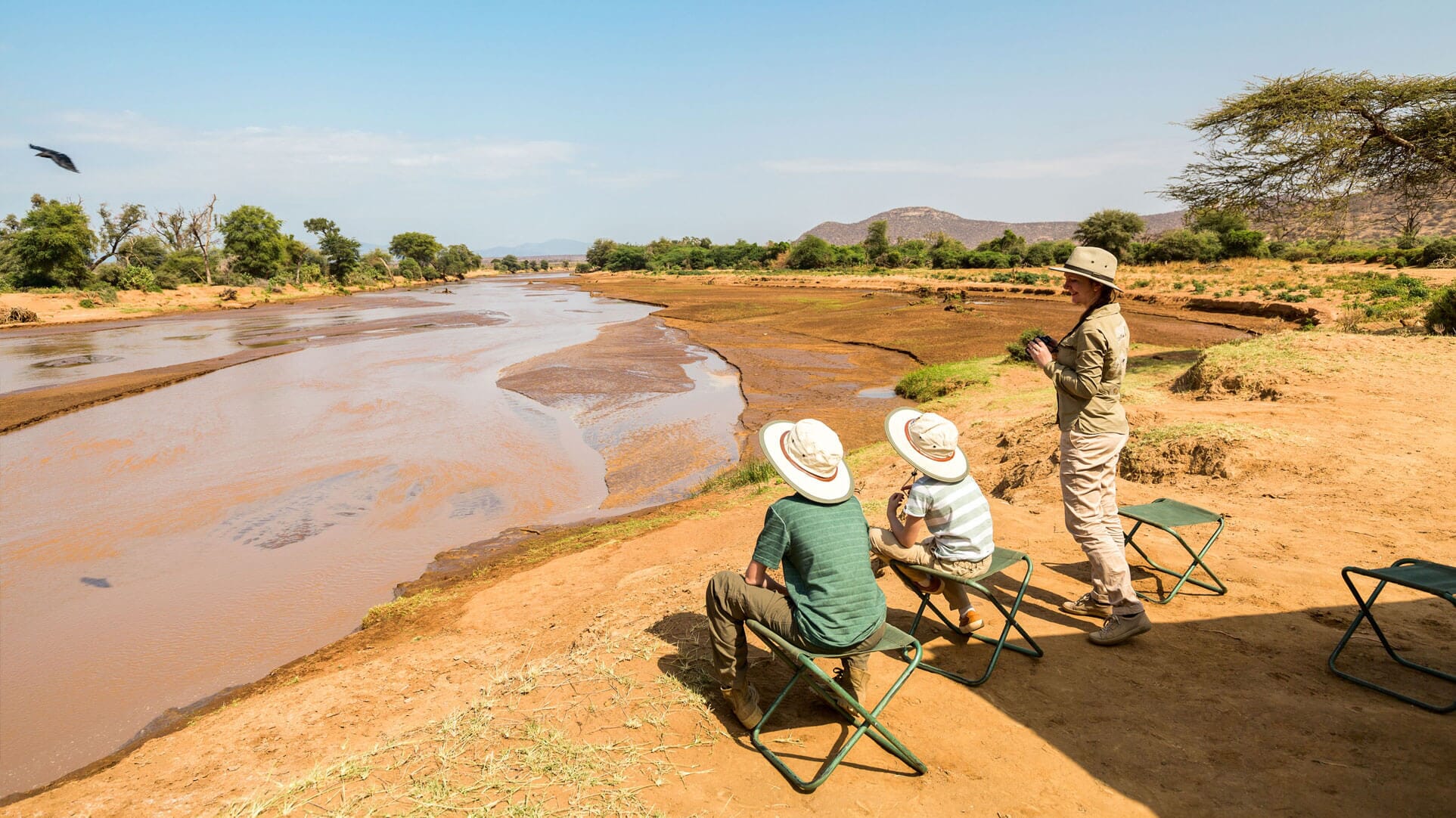
Frequently asked questions
Do you have more questions than answers at the moment? Don't worry, we're here to help
General
-
Is Africa a safe place to visit?
The short answer is a resounding yes. We work in conjunction with the latest FCDO advice and would never send you somewhere considered dangerous.
We keep close tabs on all current affairs across our African destinations and this, coupled with our extensive network of in-destination contacts, mean we have any up-to-date information when we need it.
Of course there are safety elements to take into account when planning a trip to Africa, especially with children.
-
What about Covid?
All the destinations, camps, lodges and hotels we would send you and your family to have stringent Covid procedures and protocols in place to ensure you remain 100% safe on your trip. We can provide you with comprehensive detail on these on a case by case basis, please do ask.
We will also advise you on entry and exit procedures and requirements at all stages of your trip. For example, at the moment (Feb 2021), in order to clear immigration, most African countries require you to show proof of a negative Covid PCR test taken within the last 72 hours.
It is worth noting that globally, Africa has recorded relatively few Covid cases and remains a safe travel destination. If you would like to know some of the suggested reasons for this, please do ask.
-
How much does a safari cost?
How long is a piece of string? In truth, there is no easy answer to this, as the cost per person will vary depending on factors such as the level of accommodation you are looking for, the time of year you want to travel (high and low season safari accommodation rates can vary immensely month to month), what class of cabin you want to fly in, and if there is anything specific activity-wise you want to include, to name a few.
That said, as a very rough guide, the following costs would be starting levels (excluding international flights) per adult (or child over 12) sharing:
East Africa (Kenya, Tanzania, Uganda):
Low season = from £3,000 per week
High season = from £5,000 per week
South Africa:
Low season = from £2,500 per week
High season = from £4,000 per week.
Southern Africa (Botswana, Zambia, Zimbabwe):
Low season = from £4,000 – £5,000 per week
High season = from £6,000 – £7,000 per week.
-
Will we need any vaccinations or medication?
The vaccination requirements for entry into a country vary, but as a general rule, there are certain vaccinations that are often required, for example, Yellow Fever. Speak to us for the most recent information, and also we advise asking your GP, and/or a travel clinic. The NATHNAC website. (https://travelhealthpro.org.uk/) is also a useful resource.
As we are not medical professionals, and we don’t know your family’s medical history, we can’t advise on what medications may be suitable for you to take for your trip, however we can point you in the right direction so that you are 100% prepared.
Some destinations you may visit are malarial, so this also needs to be taken into consideration.
-
What is the best age to take kids on safari?
Opinions can differ on this, as it does depend on what your goals are as a family for the safari holiday, but as a guide we say that children who are 7 and over will get the most out of a safari.
This is not to say that children younger than that should not go on a safari – it’s perfectly possible if suitable camps and lodges are chosen for the itinerary, and the day to day planning factors in all necessary elements to make the experience smooth for everyone.
A 4-year old can have a great safari experience if they have adequate rest time built into the day, a private vehicle is factored in, and sleeping arrangements suit the whole family.
We are experienced in planning safaris for families of all ages and sizes. Get in touch and we can help you decide what kind of safari is right for your family.
-
What time of year is best to travel?
This is a question that doesn’t have a straightforward answer.
There is always a destination in Africa that will suit the time of year you want to travel.
There are two ways to approach planning a safari to Africa:
1) Time the date of travel to coincide with your main interests and requirements for the trip, eg: the weather in destination, specific wildlife phenomena, cost, etc.
2) If your date of travel is fixed, choosing the travel destination that would give you the best combination of experience and price at that time.
We are well used to approaching itinerary planning in both of these ways, and happy to take as long as it takes to get things right for you.
-
What will the weather be like?
This varies of course depending on the time of year you travel, and the location. There is always sunshine to be found in Africa year-round, so whenever your travel window, we can find you somewhere sunny to go!
Very roughly, in East Africa, it rains in April/May (known as Green Season) and also for a short time around November.
For Southern Africa, the pattern is similar, and for South Africa in particular, their seasons are essentially the opposite of the those in the Northern hemisphere – summer is winter, and vice versa.
-
What are the sockets like/do I need an adaptor?
This varies from country to country and we will advise you. Generally, in East Africa the sockets are the same as in the UK. In Southern Africa they are two-pin.
Most luxury camps and lodges should be able to provide you with an adaptor but if you need one, we always recommend you travel with your own.
-
Can we pre-book our seats on flights?
Yes, once international flights are booked and paid for in full, it is almost always possible to book your seats, especially if there is an infant or child in the booking.
If you are a loyalty program member, depending on the level you hold you can sometimes book seats in advance free of charge, otherwise the payment policy varies from airline to airline.
It’s not possible to book seats on most domestic flights, as they tend to be in small, light aircraft. We will advise on this at time of booking.
-
How long is the flight to my safari destination?
From the UK, direct flights to East Africa take between 8 to 10 hours on average, and for Southern Africa it is anything up to 12 hours.
Indirect flights mostly go via the Middle East, so this takes longer and will depend on the connection time.
-
Can we use airmiles?
Most certainly. We will discuss route options and suggest flights for you, you are then free to book them directly with the airline and use your miles for this. We cannot book flights for you using airmiles.
-
Should we get travel insurance?
We strongly recommend that adequate and comprehensive travel insurance be taken out against your trip as soon as the deposit for the trip is paid. This is in case cancellation fees apply, and also to cover you at the actual time of travel.
We aren’t able to provide travel insurance ourselves but we can help with recommendations for the most comprehensive cover, particularly during the ongoing Covid-19 pandemic.
-
How much validity does a passport need to have on it?
Usually, in order to be able to clear immigration, your passport needs to be valid for at least 6 months after date of entry.
It’s also wise to make sure you have at least 6 blank pages in it (not counting the very last page) – the stamps for some countries’ visas can take up a whole page.
-
Will we need visas?
Almost certainly, although this does vary depending on your nationality, and the destination country’s requirements.
Visas can almost always be obtained well before your date of travel, which we strongly recommend. Some countries such as Kenya no longer issue visas on arrival, and require you to obtain them in advance. Speak to us for more detailed information.
Often, children under a certain age do not require a visa. As these rules vary from country to country, please do speak to us and we can let you know the requirements for your particular family or group.
-
What clothes and essentials should we take?
Check out our First Safari (link) page for our suggested packing list.
-
How much baggage can we take?
This depends on two factors: your allowance on international flights, and whether or not you are taking internal domestic flights while on safari.
If you’re not taking domestic flights, you can take with you the allowance you get on the international flight. These vary by airline and if you book your flights through us we’ll advise how much it is at the time of quoting. As a guide, it’s usually 23kgs when flying in economy class.
If you’re taking domestic flights in Africa as part of your safari holiday, most light aircraft flights give a maximum of 15kgs in total, including hand luggage. This must also be be packed in soft-side, duffle-style bags.
Arrangements can be made to take extra luggage with you on these light aircraft flights if needed. Often, the easiest way to do this is to book and pay for an extra seat.
As this has cost implications, speak to us for our safari packing tips. We are experts at packing lightly, and packing appropriately, for every member of the family.
-
Can I take my CPAP machine with me?
Usually these days the answer is yes, however, we will check this for you with each property as we build your itinerary, as sometimes the remote safari camps in particular turn their generators off overnight, resulting in no electrical supply. This is usually very easy to change, with some advance warning.


Why travel with Coral Tree?
Suggested itineraries
Our favourite family safari holidays
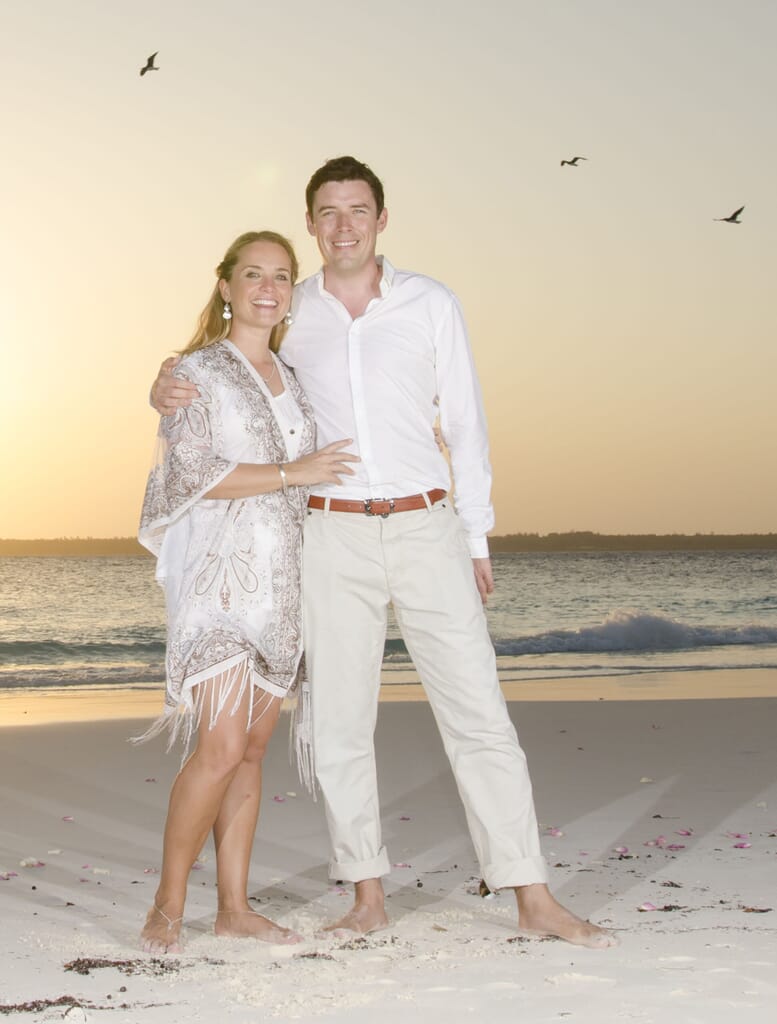
Meet our founders
We believe in expert advice and exceptional service
No half measures allowed.
Over the last twenty years, we have lived and worked in the luxury African tourism sector developing partnerships across the continent.
We know what makes a memorable family experience, and as parents, we understand what’s important to you.
